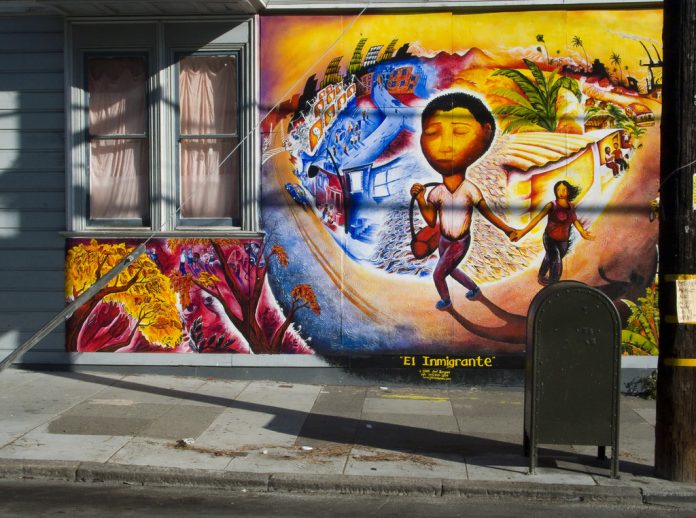With the midterm elections only two weeks away, we have seen Donald Trump return to his message that Democrats are committing widespread vote fraud, primarily through allowing non-citizens to vote in large numbers. For example, on October 20th, Trump Tweeted “All levels of government and Law Enforcement are watching carefully for VOTER FRAUD, including during EARLY VOTING. Cheat at your own peril. Violators will be subject to maximum penalties, both civil and criminal!” He has also riffed on this theme, which dovetails with Republican fear mongering around immigration in recent speeches. We should remember that implicit in all the right wing talk about caravans crossing the border, although not the border into the US, are that those people will come here and cast illegal votes for the Democratic Party.
Voter fraud in the US is essentially nonexistent but it is a frequent talking point for the President. There are several reasons for this. It helps him avoid the reality that Hillary Clinton won the 2016 popular vote by about three million votes. It also helps to gin up support in Trump’s racist base by raising fears about immigrants taking over the country while intimidating legal immigrants and American born Latinos who may eventually be dissuaded from voting. However, as the midterm election approaches it is increasingly clear that this tactic is also part of Trump’s strategy to sew doubt about the outcome if, as is likely, the Republicans lose.
This is particularly significant because there are several congressional districts, primarily in California, but also elsewhere, that are very competitive due in substantial part to immigrant communities who will be voting in substantial majorities against the President’s party. Districts 10, 25, 39, 45 and 48 in California are all expected to be very close, but Democrats only have a chance of winning those races if they are able to turn out a big Latino vote. If they succeed in doing that, Trump will not have to do much to convince his base those races were stolen.
The additional significance of these races being in California is that by the time polls close in the California it will already be 11PM in Washington. In presidential elections, because the state is so solidly Democratic, California is usually called for the Democrat almost immediately after the polls close, but in tight congressional races, all the votes may have to be counted. This includes votes cast through the mail. This process could take hours, even days, so winners in those races might not be known until Wednesday midday or even later. It is possible that control of the House of Representatives, therefore, might also not be decided until then.
Given that Donald Trump has added the entire State of California to the list of things and people he likes to attack, bully and lie about, this is a potentially explosive set of circumstances. A President who has aggressively spread lies about illegal voting, nervously watching the vote in a handful of heavily immigrant districts in a state that he has targeted with increasing frequency in recent weeks. In that scenario, it is all but guaranteed that Trump will question the validity of the process if he loses, and may not even wait until the votes are fully counted to begin doing that.
Even if the Election Night and morning after scenario is that dramatic, Trump will use any Republican defeat in districts with large Latino populations as “evidence” of voter fraud-and about a third or so of the electorate will believe that. It is more than likely that when the polls close and the outcome is good for the Democrats, Trump will continue to attack and seek to undermine the process. The impact of having a President who questions the veracity of election outcomes he doesn’t like, something he has been doing since 2016 and is unlikely to stop, weakens the sinews of democracy. It creates distrust and leads people to explore non-electoral approaches, including violence, to getting what they want. Thus, if people begin to think elections are no free and fair, not because they are but because the President keeps yelling about it, the future of democracy will be imperiled.
Additionally, although Trump’s party will be on the ballot this November, he will not. Two years from now Americans will go to the polls to decide Trump should be able to keep his job. The personal stakes for him will be much higher then. His reaction on November 6th if things go well for Democrats will be warning sign of what we can expect if he loses his bid for reelection in 2020. Anybody who thinks defeat then will bring out a heretofore unseen gracious side of the President, or thinks that Trump will suddenly a respect for democratic processes if that happens, is likely to be badly disappointed.
www.lincolnmitchell.com
Follow me on Twitter at: http://twitter.com/LincolnMitchell

